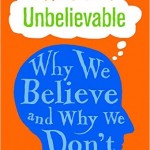A new review is now up of ‘Unbelievable’, which  promised to be a multi-disciplinary exploration of the deeper meaning of belief by an Graham Ward, an Oxford Professor of Theology. However, I unfortunately find that it lives up to its name. Click here to read the review.
promised to be a multi-disciplinary exploration of the deeper meaning of belief by an Graham Ward, an Oxford Professor of Theology. However, I unfortunately find that it lives up to its name. Click here to read the review.
All posts by Robert M Ellis
Realism and idealism
A new addition to the ‘Mistakes we make in thinking’ series of videos.
New Quick Guide
I have made various attempts to introduce Middle Way Philosophy briefly to people who are new to it or have a passing interest. It’s a tough job trying to put even just the key points in a brief compass without over-compressing or inviting complaints about jargon. Anyway, here’s my latest attempt, on a new page called Middle Way Philosophy: A Quick Guide.
Robert M Ellis
Rites of passage
At times of big individual change (such as birth, death, coming of age and marriage) human groups like to come together and affirm their social solidarity. As humans are such social animals, this is often a beneficial and psychologically necessary process. However, the way in which solidarity is usually cultivated in traditional groups is through appeal to metaphysical absolutes beyond experience: for example, at funerals, appeals to beliefs about the afterlife are common. Particularly in modern society, where an increasing number of people can think critically, and where there are a plurality of such absolute claims, this way of doing things constantly undermines its own object by producing conflict. The absolutes appealed to are exclusive, and shut out those who do not subscribe to them, whilst those who are beginning to think critically about them will probably have to repress their doubts about the absolute claims (producing inner conflict) in order to maintain social acceptance. How to do rites of passage well is thus a major problem for modern society, both for how groups organise rites of passage and how individuals participate in them.  The traditionalists maintain their commitment to the absolutes (and either deny the problem or see it as ‘personal choice’); a few radicals have experimented with alternatives such as humanist ceremonies (which may or may not be free of negative absolutes); but probably the majority of more or less non-religious people participate in the traditional ceremonies with a greater or lesser sense of reserve, reluctance or alienation.
The traditionalists maintain their commitment to the absolutes (and either deny the problem or see it as ‘personal choice’); a few radicals have experimented with alternatives such as humanist ceremonies (which may or may not be free of negative absolutes); but probably the majority of more or less non-religious people participate in the traditional ceremonies with a greater or lesser sense of reserve, reluctance or alienation.
I have been engaging with this problem anew for myself recently, following the death and funeral of my father. My father was a Baptist minister, and deeply engaged in a church community, as are much of the rest of my family. Apart from attending rites of passage, however, I have had little or no direct involvement in that community since I was a teenager. My experience of church weddings and funerals throughout my life has been one of pretty constant alienation and conflict. I would have liked to participate in the community, but strongly resented the requirement of reciting, singing and listening to absolute claims I did not believe in as an effective qualification for acceptance. I was also involved in Buddhism for many years, and have had similar experiences of alienation in Buddhist rituals, including rites of passage such as the funerals of Buddhist friends. Often I stood or sat in respectful silence, but that would not stop my mental reactions to what was being said and the way this distracted from the social solidarity I would otherwise have been very happy to engage in.
Given this previous history, at first I was dreading my father’s funeral. The more the ritual mattered to me, the deeper the alienation seemed likely to be. However, I am very glad to report that, for the first time, I found this Christian funeral a very positive and moving occasion, that helped me say farewell to my father in an entirely fitting way. For the first time I found ways forward, and those ways are all about the application of the Middle Way. There are indeed ways of ‘working with’ traditionalist rites of passage which at least worked with the group of relatively liberal Baptists and Methodists I was with, though they may be more difficult (not impossible) to use with more conservative or fundamentalist religious groups. I wanted to share these, and put them in a general form, in the hope that they will be useful to others, but I will illustrate them using my own recent experience.
I am going to suggest three ways of applying the Middle Way when involved in a rite of passage in a religious or other group context where absolute beliefs are invoked: positive engagement in solidarity actions, archetypal interpretation and perspectival reflection.
Positive engagement in solidarity actions
The real point of rites of passage is solidarity, so one obvious way to respond is to do whatever you can to support that solidarity without compromising your integrity. If you’re alienated from the metaphysics, it might require all the more countervailing effort to convince both yourself and others that you’re positive about the solidarity bit. At my father’s funeral, I both played the piano and gave a tribute, and that made a tremendous difference to me. I was in touch with my feelings and was able to channel and communicate them positively, but neither action required me to say things I didn’t believe. Others also responded to this, and lots of people who knew me in childhood then came up to talk to me because of that participation, when they might well have just avoided me as an awkward customer otherwise. Of course, if you’re not so closely involved, or not sufficiently trusted by the organisers, it might be difficult to take such a central part in the ritual, but there may be other, smaller ways of expressing solidarity feelings, such as giving flowers or other gifts, or helping out in smaller ways with the organisation.
Archetypal interpretation
But what do you do about the hymns, prayers and sermons, or equivalent ritual speech or song in other religions? I think the content of these can be roughly put into three categories. One aspect is universal and easy to relate to: it is just celebration of solidarity or common wisdom. When I find passages like that in a prayer or hymn I’m happy to join in. When a religious leader shares common wisdom, for example talking about the need for awareness and response to one’s partner in a marriage, then I’m also happy to listen and agree. Another aspect is clear statements of metaphysical belief (such as creeds), which are the most difficult to deal with and I’ll come back to below. A third aspect in between, though, consists of a lot of religious language that could be interpreted absolutely, but can alternatively can much more helpfully interpreted in archetypal terms.
Archetypes are functions of our own psyches, expressing our deeper needs, drives and aspirations in ways that may not always be conscious and may challenge us. One of the beneficial aspects of religion is that it may put us in touch with bigger perspectives and more profound emotions through archetypes. These give us a sense of meaning and resources for our lives that is often confused with (but needs clearly separating from) absolute beliefs. If you can maintain a sense of archetypal interpretation of the religious language used in a rite of passage, my recent experience is that can be profoundly liberating. However, it’s taken me a long time to move from mere intellectual appreciation of archetypes to being able to connect with them in a context as loaded with other emotional associations as a church service.
For more on archetypes you might want to listen to some of my talks on the subject, or read the section on them in Middle Way Philosophy 3, but in the context of rites of passage the most likely archetype you’ll come across is the God Archetype (also called the Wise Old Man/ Old Woman). The God Archetype is a projection ahead of yourself as a completely integrated being, and its power comes from the temporary energy of integration as we connect even with the possibility of being so much ‘bigger’ than we are now. For example, this is the first verse of the hymn that opened my father’s funeral:
Great is thy faithfulness, O God my Father,
There is no shadow of turning with thee;
Thou changest not, Thy compassions they fail not,
As Thou hast been Thou for ever wilt be.
I managed to relate to this positively by reflecting on the way that the capacity for integration, represented deep in my experience by God, was always there in the way the hymn was trying to convey. I could always return to more integrated states, however conflicted I might get at other times. I found that interpretation easier in that moment, also, because I was in touch with my physical experience, which could be a basis of connection with the bodily experience of the hymn writer (I expect that he was expressing his bodily experience as well as his metaphysical assumptions). On past such occasions, I have instead allowed myself to follow a critical intellectual response to the metaphysical claims about God’s eternal nature that one could also get out of this verse, which leads one instead rapidly down a road of conflict and alienation.
Perspectival reflection
Finally, though, there are also still very likely to be claims made during rites of passage that cannot either be positively accepted or interpreted archetypally by anyone trying to practise the Middle Way. For me, claims about the afterlife fall into this category. I have previously found them the most jarring, even offensive, thing I experienced at funerals. Sometimes I have thought “How dare these people disturb a helpful process of social solidarity by engaging in wishful thinking and metaphysical fantasy completely divorced from bodily experience?” But of course, these passages will happen. In most religious contexts, we’re most unlikely to be able to persuade the organisers to leave them out, and it’s probably not wise to even try, given how deeply rooted they are.
However, in my recent experience I think the way I managed to deal with such indigestible bits is to put them in perspective. Again, bodily awareness and positive participation really seem to help with this sense of perspective. These are just people engaging in fantasies, and though they are not harmless by any means, they are far less important than the positive value of the ritual as a whole. They are neither the whole of the people and their beliefs, nor are they the whole of the religious community, and it is possible to gently put them aside and just focus on what is positive.
Picture: Simone Martini – Funeral of St Martin of Tours
Critical Thinking 16: Appeal to Ignorance
It’s over a year ago now since I let the ‘Critical Thinking’ series of blogs lapse (the last one being no. 15, the ‘Texas Sharpshooter Fallacy’). However, that wasn’t at all because I’d run out of interesting material to talk about. Inspired by work I’m doing at the moment on Critical Thinking issues and the David McRaney podcast, I thought it might be time to revive and continue this series. A full list of the previous instalments can be found here.
The Appeal to Ignorance is the claim that you can justify a belief as completely true or false just by pointing out a lack of information. It’s assumed that because we are ignorant about the evidence for or against a particular claim, it must therefore be true or false. An easy classic type of example would be the ‘Nessie Argument’:
Nobody has yet disproved the existence of the Loch Ness Monster. So the Loch Ness Monster must exist.
This kind of example might be reasonably obvious to many people as fallacious. However, I am often astonished at how widespread and, indeed, institutionalised appeals to ignorance often are. The most common arguments for atheism, and for philosophical idealism, are usually based on an appeal to ignorance. Here’s an example of each:
The existence of God cannot be proved. All the supposed proofs of God’s existence, for example based on religious experience or design, are based on doubtful assumptions. So we must conclude that God does not exist.
The ultimate existence of material objects can never be proved, because all we have access to is our experience of those objects. Thus there can be no material objects out there, only minds and mental constructions.
These are also examples of what I have sometimes called ‘sceptical slippage’. People begin with a justifiable doubt about something, but then they turn that doubt into a negative claim, in many cases apparently not noticing that they have gone from one to the other. But the distinction between uncertainty and negative claims is a large and important one with lots of practical implications. For example, those who go around stating that belief in God is ‘false’ cause a lot of unnecessary conflict that would probably not be created by those who merely point out that we don’t know whether or not God exists (especially when religions themselves often offer mystical perspectives that underline this point).
These sorts of examples show how important avoiding the appeal to ignorance is in Middle Way Philosophy. If we are to apply the Middle Way carefully and reflectively, we need to be willing to take a critical stance towards traditions that may be trying to avoid positive absolutes, but have failed to avoid negative absolutes after falling into an appeal to ignorance. That’s the thing that seems to divide Middle Way Philosophy from naturalism, which on most interpretations rejects the ‘supernatural’ as false because it is uncertain.
Like most such unjustified assumptions, the appeal to ignorance also potentially has an equally erroneous opposite: that is the assumption that due to ignorance we cannot make even provisional assertions. not only can we not justify absolute assertions based on ignorance (whether positive or negative), but we also cannot justify the avoidance of assertions. A degree of ignorance is our embodied state, but it’s only a degree of ignorance, not an absolute ignorance. We can always assert that based on our experience so far, subject to amendment from further experience, such-and-such is the case. For example, I can assert that the sun will rise tomorrow. I am not prepared for the rapidly plunging temperatures and planetary ruin that would occur if it didn’t, even though I can’t be absolutely certain. Practically speaking, I am justified in relying on that very high probability.
Exercise
Are these arguments guilty of an appeal to ignorance , or are they just taking our ignorance reasonably into account?
1. We don’t know when civilisation is going to fall apart, so we should all stockpile food and weapons to be ready for that eventuality.
2. We don’t know when the next outbreak of ebola will occur, and a worldwide pandemic has only been marginally headed off for now. Every child in the world should thus be given a vaccination against ebola.
3. You never know when a disabling virus is going to strike your computer. Back up all your files in at least two different places.
4. We don’t know for sure that the tooth fairy does not exist, so it’s quite OK to tell your children stories about the tooth fairy.
